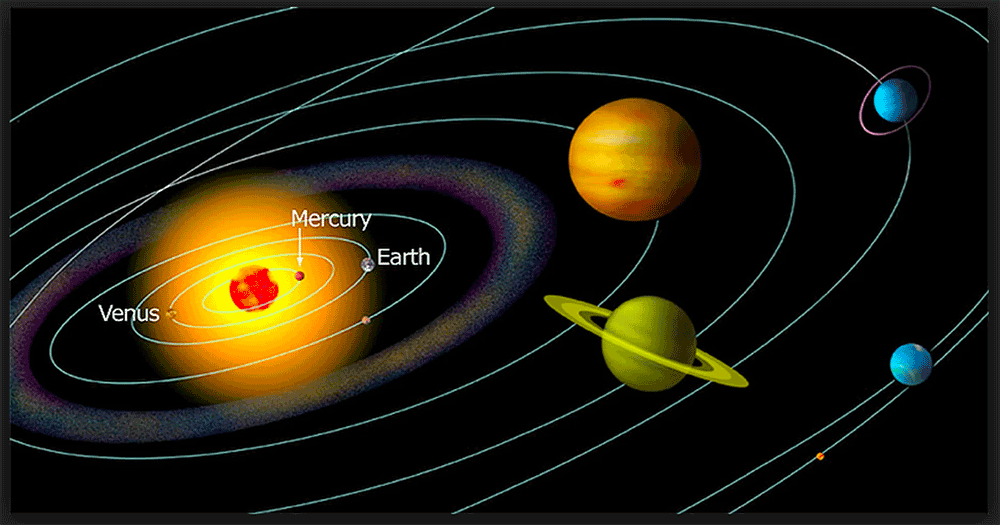Planet MERCURY
A look at the origins, meaning and usage of the planet name "MERCURY". For word definitions see WordChecker belowBackground
Mercury is the smallest of the eight planets in our solar system. It is the closest planet to the Sun, at an average distance of 58 million kilometres. Being so close to the Sun means that it has to be the fastest planet in order to remain in orbit. Mercury takes only 88 days to orbit the Sun at a speed of nearly 48 kilometres per second. By comparison, Earth takes 365 days at nearly 30 km/s. Mercury can be seen from Earth with the naked eye.
Pronunciation: /ˈmɜ:(r)kjʊri/
Origins, meaning and usage of the name
Long before telescopes, the Romans could see the planet Mercury. They named it after their deity Mercury (Mercurius in Latin), who was the messenger to the gods. They named it thus because it zips around the Sun so fast, and an essential requirement for any messenger is speed. This also accounts for why Mercury the god was portrayed as having wings on his helmet and shoes – he’s often described as the “winged messenger”.
The adjective from the planet Mercury is Mercurian (capitalized as derived from a proper noun), for example: The Mercurian craters look spectacular. Mercury, along with its fictional inhabitants known as Mercurians, have featured in various works of fiction. Like planet Mercury, many other entities connected with speed and communication are named after the messenger god, such as newspapers (eg Quebec Mercury, Sunday Mercury), delivery services (eg Mercury Couriers, Mercury Express) and telecom companies (eg Mercury Communications); while the adjective mercurial describes someone subject to rapid changes of mood.

Above: Thanks to its orbit so close to the Sun, Mercury is the fastest of all the eight planets in the solar system, travelling at a speed of nearly 48 km/s. If Mercury moved any slower, it would fall out of orbit and crash into the Sun — not good for a messenger to the gods. (Image: SpaceStationInfo.com)
Example sentences:
- I think I saw Mercury last night.
- You can see Mercury with the naked eye. You don't need a telescope to see it.
“Mercury, the Winged Messenger” (above) is the third movement of “The Planets”, written by the English composer Gustav Holst between 1914 and 1916. Its light touch and ascending pitter-patter of notes well recall the nimble messenger god who gave his name to the planet Mercury.
solar system (noun): our sun and the eight planets (and other bodies) that go around it
naked eye (noun): unassisted vision; the eye without help from a telescope
the Romans (noun): people of the ancient civilization that was based on Rome, Italy some 2000 years ago
deity (noun): a god or goddess, for example in Roman mythology
zip around (verb, informal): move very fast
nimble (adjective): quick and light in movement